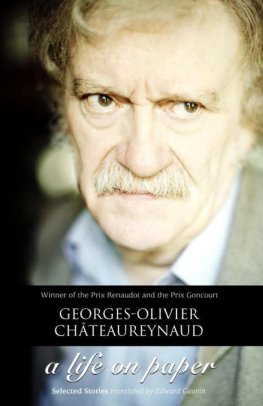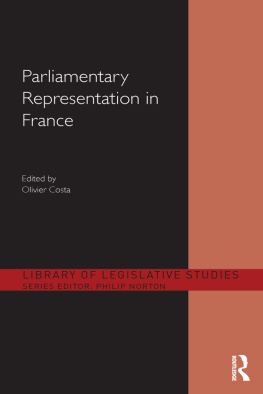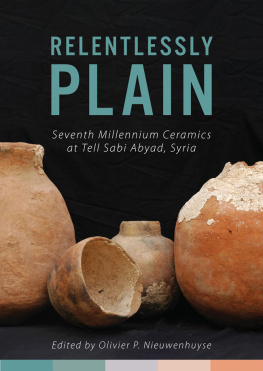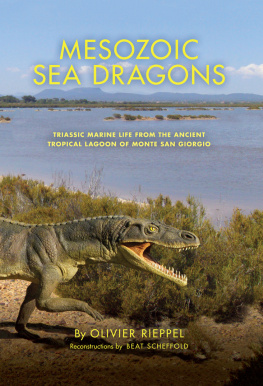Ethical
Transformations for a
Sustainable Future
Ethical
Transformations for a
Sustainable Future
Peace & Policy
Volume 14
Olivier Urbain and
Deva Temple, editors
First published 2011 by Transaction Publishers
Published 2017 by Routledge
2 Park Square, Milton Park, Abingdon, Oxon OX14 4RN
711 Third Avenue, New York, NY 10017, USA
Routledge is an imprint of the Taylor & Francis Group, an informa business
Copyright 2011 by Taylor & Francis.
All rights reserved. No part of this book may be reprinted or reproduced or utilised in any form or by any electronic, mechanical, or other means, now known or hereafter invented, including photocopying and recording, or in any information storage or retrieval system, without permission in writing from the publishers.
Notice:
Product or corporate names may be trademarks or registered trademarks, and are used only for identification and explanation without intent to infringe.
Library of Congress Catalog Number: 2010004007
Library of Congress Cataloging-in-Publication Data
Ethical transformations for a sustainable future / Olivier Urbain and Deva Temple, editors.
p. cm. -- (Peace and policy ; v. 14)
Includes bibliographical references.
ISBN 978-1-4128-1445-4 (alk. paper)
1. Environmental ethics. 2. Environmental protection--International cooperation. 3. Environmental protection--Moral and ethical aspects. 4. Sustainable development. I. Urbain, Olivier, 1961- II. Temple, Deva.
GE42.E798 2010
179.1--dc22
2010004007
ISBN 13: 978-1-4128-1445-4 (pbk)
Contents
, by Olivier Urbain
, by Olivier Urbain
, by David Abram
, by Deva Temple
, by Robin Attfield
, by Ellen Gaddy
, by Marjorie Kelly
, by Dharm P.S. Bhawuk, Susan Mrazek, and Vijayan P. Munusamy
, by Imre Lvai
, by Izaskun Petralanda
, by Laura Delgado Petrocelli
Olivier Urbain
Our planet does have a future, but it may not be one suitable for the human species. How did we get to this point? After learning how to use water and produce food surpluses, we invented agriculture, created civilizations, designed machines to help us, and learned how to communicate at the speed of light. Where did it all go wrong? Human life on Earth is no longer sustainable. Climate change is catching up with us, the financial and economic crisis is threatening jobs everywhere, we still have 25,000 nuclear weapons of which 3,500 placed on hair-trigger alert, waiting to explode on a minutes notice. Natural resources are rapidly dwindling, fresh water is becoming increasingly scarce, peak oil is drawing near. We use our grain to feed livestock so that a minority of us can eat meat while the majority is struggling with food shortages and about one billion, almost one sixth of the worlds population, starve. The gap between the rich and the poor is widening, the Millennium Development Goals are becoming a distant dream, massacres of civilians go unpunished in Africa and the Middle East, in South Asia and elsewhere what can we do?
What should be done has become obvious for many of us, ordinary people and heads of states alike: we need to move towards a world free of nuclear weapons, use renewable resources and green the economy, reform the UN and give ourselves the effective and humane global governance we deserve, develop conflict transformation skills to avoid violence, design new financial, economic, educational, legal, scientific, political systems that will ensure a different way of living on this planet, a sustainable way. So, where do we start?
The contributors to this volume believe that transformations at the ethical level are necessary in order to start moving towards a future that will be sustainable for life on Earth. The most fundamental ethical shift is to be able to see that all life is interconnected and that our political, economic, and social systems must be based on sustainabilityfor all living and non-living systems, not merely for human convenience. While not spectacular or newsworthy, an inner shift within each of us is the most solid point of departure towards sustainability. The nine chapters in this volume give concrete examples of how this can be accomplished. We hope you find them intellectually challenging and philosophically inspiring.
Olivier Urbain
Director, Toda Institute
Tokyo, Japan
June 16, 2009
Olivier Urbain
It has become increasingly apparent that humanitys complex social, political, and economic systems are incompatible with the finite capacity of the Earth to replenish resources and absorb wastes. If the planet is to continue to be habitable for us, our descendants, and for the myriad web of other creatures that make life possible, we must transform human systems so that they are aligned with natural systems. One thing is sureit will not be Natures laws, the delicate interdependence that characterizes Earths ecosystems, that changes. The change we seek must begin within each of us, and from there permeate throughout our social, political, and economic structures.
A few numbers quoted at the end of Home, a documentary by Yann Arthus-Bertrand (2009) that shows stunning and colorful aerial views of the Earth, can serve as a wakeup call:
- 20 percent of the worlds population consumes 80 percent of its resources
- 5000 people a day die because of unsafe drinking water
- One billion people have no access to safe drinking water
- Over 50 percent of grain traded around the world is used for animal feed or biofuels
- Three quarters of fishing grounds are exhausted, depleted or in dangerous decline
- Nearly one billion people are going hungry
- The ice cap is 40 percent thinner than 40 years ago
While a few still doubt that our survival is at stake, most people know that something needs to be done. The question is, can we change fast enough? If global warming continues unabated, the permafrost will melt, releasing methane into the atmosphere, and the sea levels will rise ever faster, with catastrophic consequences. Many scientists now say that we have a mere ten years before climate change hits a tipping point and the Earths climate systems begin to oscillate wildly. Such climate instability would undermine the agricultural foundations of modern society and force millions of climate refugees to migrate in search of higher ground, food, and clean watersparking countless regional conflicts over dwindling resources.
Even when confronted with such frightening prospects, we know that transformation is possible and that many people are willing, even yearning, to change. President Obama was elected based on his campaign platform of change. Since taking office, he has made progressive declarations concerning nuclear weapons, dialogue of civilizations, human rights, sustainability and other topics that no one would have believed possible, until recently, for someone in his position.
But what is it, precisely, that we need to change? How do we change our behavior, and in which direction? Where do we start? In her chapter, Marjorie Kelly points to the human spirit as the most crucial point of departure towards all transformations. She also captures the spirit of urgency pervading this entire volume:












